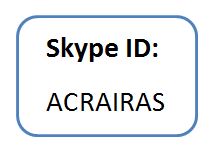Goods and Services Tax (“GST”)
GST is a broad-based tax on domestic consumption and is also known as Value Added Tax (VAT) in other countries. The tax is paid when money Is spent on goods or services, including imports. It is multi-stage tax which is collected at every stage of the production and distribution chain.
There are 4 categories of GST in Singapore, namely:
It all starts with GST Tax Registration
As GST is a self-assessment tax, businesses are required to continually assess the need to be registered for GST.
A business is liable to register for GST when its taxable turnover has exceeded S$1 million in a 12 month period or is expected to exceed S$1 million in the next 12 months.
A common misconception is that the business is only required to assess its need for compulsory registration at the end of its financial year. However, this is not necessarily true. A business is required to continually assess its need for compulsory registration on a rolling 12 month basis. This means a business will need to check at the end of every March, June, September and December (assuming the year end is 31 December) to look back at the past (and future) four quarters to determine if its taxable turnover is more than S$1 million.
GST Tax Complications
A commonly misunderstood area is that GST is only applicable to transactions that are recorded in the accounting system, and non-monetary transactions such as goods given free as gifts thus do not attract GST. This is not the case as the GST legislation records “gifts” as deemed supply, and businesses providing these complimentary goods must account for and pay 7% GST to the Inland Revenue Authority of Singapore (“IRAS”) based on the open market value of the goods unless the cost of the gifts or goods is not more than $200, or businesses did not claim input tax on the purchase / import of the goods.
Another error is the reporting of exempt supplies. Businesses tend to overlook and wrongly include the value of unrealised exchange gains or losses in the GST Form 5. Businesses only need to report the absolute value of the net realised gain or loss in the GST return.
In summary, businesses need to be mindful of the proper accounting of GST as there may be penalties levied by IRAS when these are uncovered during IRAS’ audits. If you need help with your company’s GST compliance matters, you will be glad to know that J Accounting Services do offer you with such a service.




